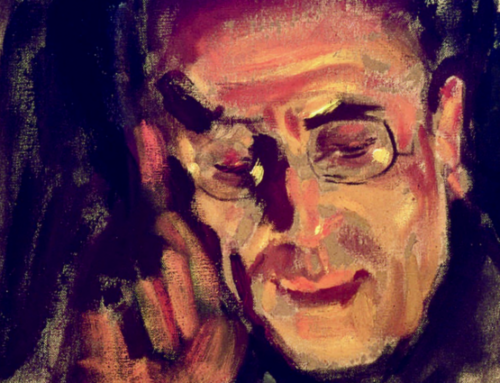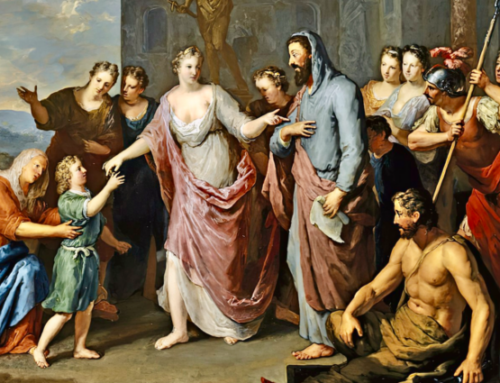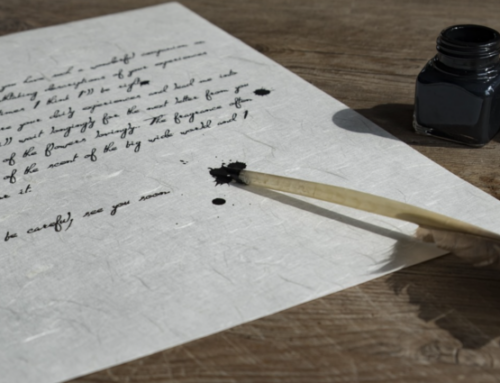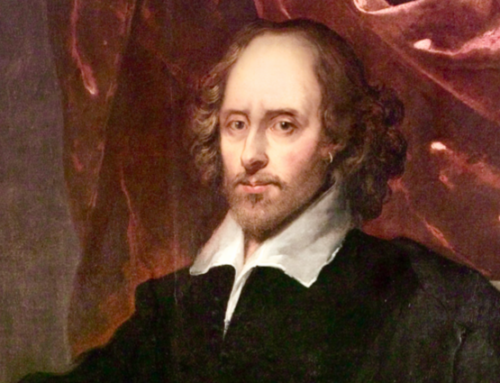In his play “Becket,” Jean Anouilh anchors his themes in a traditional Christian worldview. Becket’s journey to finding his “true self” is shown to be identical with honoring God and fulfilling one’s moral duty.
Plays, movies and other dramatic renditions have made the life and martyrdom of St. Thomas Becket familiar to a wide audience. Many will have read T.S. Eliot’s Murder in the Cathedral and still more will have seen the highly regarded 1964 movie Becket; fewer, though—especially in the English-speaking world—will have read the stage work upon which the film is based. This was Becket, ou l’honneur de Dieu, by the popular French playwright Jean Anouilh, which premiered in Paris in 1959 and was performed to equal acclaim to New York in 1960 as Becket, or the Honor of God.
Anouilh’s classically structured drama takes some historical liberties, as he himself admitted. He makes Thomas Becket a member of the Saxon underclass who by ingratiating himself ascended the ranks of the Normans; in reality, Becket (originally Bequet) was of Norman blood just like the king he served. But these historical embellishments help Anouilh sharpen his narrative into a tale about conflicting loyalties and values.
Writing during the heyday of existentialism, Anouilh weaves elements of that philosophical movement into Becket. Yet in contrast to atheist existentialism, Anouilh anchors these themes in a very traditional Christian worldview. Becket’s journey to finding his “true self” is shown to be identical with honoring God and fulfilling one’s moral duty.
In Anouilh’s account, the young Becket is a court dandy and libertine, a man dedicated to luxury and pleasure. He is right hand man to King Henry II—his friend, companion, confidant, and advisor. He indeed sometimes appears to be the king’s alter ego. Throughout the early part of the play Becket is constantly at the wayward king’s side, giving him a massage, helping him get dressed, and giving him political advice. As for the king, he is quite simply a moral monster—empty-headed, egomaniacal, gluttonous, lustful—and his character shows no improvement during the course of the play. In breaking free from the king’s influence, Becket finds his true self, which also turns out to be the self that God is calling him to be. He finds true freedom, which consists in serving God and man in the truth.
In the early scenes, Becket’s motives seem shady; does he really enjoy serving the king like a valet, as he claims, or is he only looking toward self-advancement? If the latter, then Becket gets his wish in short order, but it is not exactly what he bargained for. The king, wanting a loyal party man in the high ranks of the church, names him archbishop of Canterbury to replace the one who has just died. This announcement shocks Becket, who up to now has not led a life conspicuous for sanctity and who has not even yet been ordained a priest.
In an earlier scene, Becket and the king had been hunting and Becket had seen wild boar about to be killed. He had reflected that putting one’s life on the line gives one “a moment of delicious personal contact when one feels, at last, responsible for oneself.” It is in losing one’s life that one finds it.
This line turns out to be prophetic for Becket as, now installed as archbishop, he increasingly defies the king’s policies toward the church. The king’s noblemen have had priests and monks murdered, abducted, or tried in secular courts; Becket accordingly excommunicates the noblemen in a move to protect his flock. In a later scene with the king, Becket says that his duty is not so much to do things as simply “to say no” to the king. The king is consequently torn with a mixture of love and hate toward Becket, seeing his opposition as a betrayal of their friendship. This violent passion eventually leads him to have Becket murdered.
The supreme irony is that the king caused his own crisis by elevating Becket, not foreseeing that Becket’s character would be influenced and molded by his new office. It is here perhaps that the existential dimension of Becket is most evident: in its vision of how the roles we play in life and the moral choices we make shape who we are.
Upon becoming archbishop, Becket undergoes a shift of character so abrupt as to make the audience wonder if it missed a scene or two. He embraces his new office with the zeal of a monk, giving away his possessions to the poor and—in an unmistakable allusion to the Gospel parable—throwing open the doors of his residence for the poor to come and dine.
Becket gives voice to his conversion in two great prayer-soliloquies. In the first, he tells God of the liberating joy he feels in giving away his riches; the whole thing feels “far too easy” and he worries that God is somehow tempting him. In the second, he concludes “I don’t believe you are a sad God” and that everything that is happening to him is part of the divine plan. Becket’s change of identity is enacted in a neat coup de théâtre: At first dressed in fancy courtier’s attire, he goes behind a screen in his bedroom and emerges a moment later wearing a simple woolen monk’s robe. The moment symbolizes graphically how Becket has “put on Christ” and abandoned a life of power and privilege for one of humble service.
The suddenness of Becket’s conversion conveys the idea of how having a great role thrust upon us can effect an immediate change. Anouilh is concerned with showing, in existential fashion, how our moral choices shape who we are as individuals. In standing against the king at great risk to himself Becket is defending the honor of God, but at the same time he is asserting his own identity and rights as a priest. The play asserts that our identities come from God and consist in the fact that we are his children and must obey his laws. As Becket says, “I was a man without honor. And suddenly I found it—one I never imagined would ever become mine—the honor of God.” Because human beings are inherently moral agents, doing what is right leads us to our true fulfillment, peace and happiness. The king begrudgingly tells Becket at one point, “I give you my royal peace. May you find yours. And may you not discover you were wrong about yourself.”
Also typically existential is Becket’s awareness of the absurdity of his situation, torn as he is between various loyalties. Although a Saxon by blood, Becket has infiltrated the Norman elite and is thus deemed suspicious in the eyes of both groups. Likewise, Becket is caught between loyalty to the church and to the crown in a way that seems insoluble. Yet the absurdity in Becket is the absurdity of the world only and not of the universe. Becket’s faith in God assures him that there is an ultimate purpose to his life, no matter how absurd things may temporally seem: “We must only do—absurdly—what we have been given to do, right to the end.”
Morality does not mean acting absurdly, but rather doing what is right in the face of absurdity. Becket insists that doing what is right is rooted in a correct understanding of reality. When the king asks him about why he is so preoccupied with giving things “labels,” Becket replies that it is essential “for the world to have a shape” because otherwise “we can’t know what we’re doing.”
In this way, Becket represents the thoughtful, reflective life in contrast to the thoughtless, brutish existence of the king and his courtiers. In one scene, three of the king’s barons—the ones who will eventually carry out Becket’s murder—sit at camp and discuss what sort of a man Becket is. “The Chancellor of England,” answers one. “I don’t see what else there is to inquire into in that score.” Philosophical questions completely evade this crew. Becket, by contrast, aware of his own moral weakness, asks himself introspectively, “But where is Becket’s honor?” and spends the rest of the play finding an answer to that question.
Becket finds himself having to resist not just the king and his henchmen but also fellow bishops who are little more than politicians. That the church itself is riddled with corruption gives extra dimension to Becket’s quest to defend the honor of God.
In a way that foreshadows another martyr, Thomas More, Becket tells the king that he must obey him “in all that concerns this earth” but he must also defend “an Honor…which dates from all eternity.” His decision to follow the will of God is seen in existential terms as a fidelity to his own system of values, a choice that he must make for himself. The honor he opts for is not the honor of men, based on self-serving and flattery, but the primordial honor of God, before which even kings must bow. In fact, Becket holds out to the king the solution to his dilemma, the one and only decision that will make peace: “I am waiting for the honor of God and the honor of the King to become one.”
Supporting and giving sweetness to Becket’s self-sacrifice is—something one might not suspect—a love of beauty. The theme of beauty runs throughout the play. When still a layman, and none too devout, Becket visits his beautiful mistress Gwendolen and reflects that beauty is “one of the few things which don’t shake one’s faith in God.” Later, he exchanges his expensive Italian silverware for simple wood bowls and spoons—but insists that they be served to his poor guests “with full ceremony, just as for princes.” The king refers to Becket’s “esthetic side” as the predominant part of him.
Becket honors beauty to the very end. In the climactic scene, although knowingly facing his doom as the king’s henchmen approach the cathedral with murderous intent, he meticulously prepares himself to say Mass, telling his young assistant to “do up all the little laces…. God will give us time.” Becket sees his moral and professional duty as being tied up with aesthetic quality, with “doing what I have to do and doing it well.” Just before the assassins arrive, Becket tells God that he is “adorned for your festivities”; but instead of the Mass he will offer his own life. In doing so, Becket becomes like Christ in the most real sense, and he does so while looking his very best.
The Imaginative Conservative applies the principle of appreciation to the discussion of culture and politics—we approach dialogue with magnanimity rather than with mere civility. Will you help us remain a refreshing oasis in the increasingly contentious arena of modern discourse? Please consider donating now.
The featured image, uploaded by Wolfgang Sauber, is licensed under the Creative Commons Attribution-Share Alike 3.0 Unported, 2.5 Generic, 2.0 Generic and 1.0 Generic license. courtesy of Wikimedia Commons.








Lovely! Saw Burton as Becket. My favorite scene was Holy Thursday washing of feet. Burton was superb.
Thank you for this. Wish I could find a production of this play.
On Teaching Jean Anouilh’s Becket to High School Seniors
Beginning with the film.
1st student: “Is that the pope?”
2nd student: “I’d like to shoot that old pope.”
We have a lot of work ahead of us
An outstanding essay on one of Catholicism’s greatest saints! Well done.